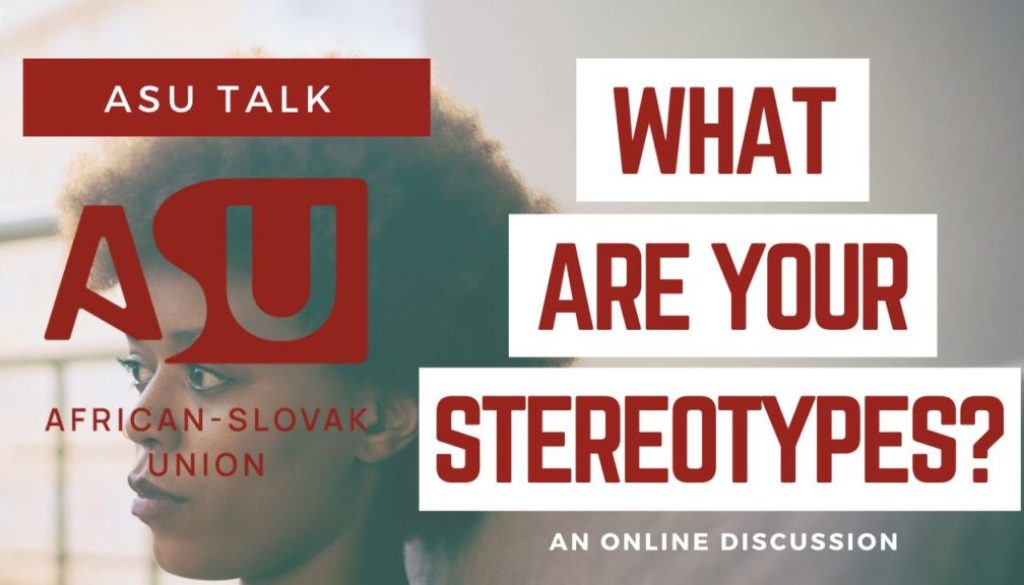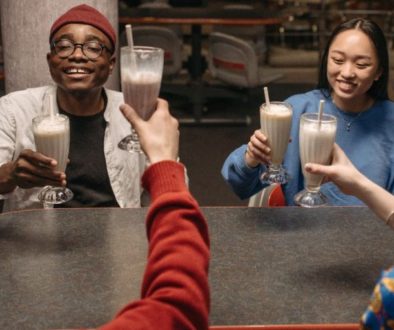ASU Talk: How Stereotypes Influence the Way We Connect.

What are stereotypes? How do they influence our attitude? Are they always negative? How can we get rid of this negativeness in our mind?These are just a few questions that were addressed during our second live ASU Talk.
According to Peter Huray, an experienced personal development coach who also engages in humanitarian projects and actively works with youth, stereotypes are our first thought or assumption, be it positive or negative, and they are present in each and every one of us due to the lack of personal experience. Some people claim that it is actually good to have negative stereotypes, as it forms certain protection from danger. From the perspective of evolution, we have always been in danger and we have always needed to be careful and aware. This is the tricky part. What is dangerous to me, does not have to be dangerous to you. We often generalize and consider these assumptions a norm, or even objective reality. Simply put, you only need to ask one simple question to address this pre-programmed behavior – what is normal? There is no objective answer, and in it inevitably lies the diversity. We need to have a tremendous amount of information to claim something is correct, normal, right.
Stereotypes are also present within presumably homogeneous groups of people, Godwin Mugisa, a successful entrepreneur from Uganda stated. In Africa, there are stereotypes imposed on tribal groups, such as some are lazy, some have women not suitable to be a good wife. Godwin himself faced prejudice being a Ugandan in Tanzania, as he was confronted with the opinion that he would be stealing work from the locals.
Frank Embree from the audience asked: „Why are we not talking about stereotypes that are the product of unequal power relations within the context of racism/white supremacy?“
In business context, Godwin has personal experience with losing a deal for being a foreigner despite being the most qualified for the particular job.
„There is a lot of xenophobia and racism, because people assume they are better or simply because they don´t know. It is imperative to ask, clarify and compare!“ Peter added. He has worked with youth from Germany, Turkey, with African-Americans and many more and the patterns stays the same. The important thing is to confront the stereotype. Ask the people“ „How do you see it?“ It is arguable if even 5 separate opinions are enough for any of us to judge a certain group, but it is definitely a start. Not all people are open-minded enough. Sometimes it is easier to stay in the learnt comfort zone, and that is why African-Slovak Union and the ASU Talk are here to challenge this.
More questions came in, such as the one from Sakong Kiplagat: „How can we ameliorate the stereotypes? Don´t you think even the way the requirements for recruitment of a job incorporate some form of stereotypes? Some people are not hired for a job they could do because they lack university degree.“
From Peter´s point of view, there are always personal – negative or positive – stereotypes imposed by recruiters. They might consider a person the best fit, yet they will not hire. University degree is still an important criterion. Even with 20 years of on-the-job experience, you might not land the position simply based on the assumption that university graduates are better.
In addition to the degree, also the role of a picture on the CV normally causes heated discussion. In the process of hiring, what is the best process to ensure objectivity and reduce the influence of looks?
For Godwin, the role of physical appearance is of importance is specific professions, such as sales and marketing. It is proven that looks sell and for example in the beauty industry, the salesperson needs to represent what the product stands for. On the other hand, there are companies like Coca Cola, who give you a chance to prove yourself and only decide based on a hands-on training.
Entertainment industry is a topic on its own regarding the looks. You might be the best singer, yet in the contest you will lose your contract to a woman with indisputable sex appeal. According to Peter, there in nothing wrong about this as long as the expectations are set beforehand. There has to be transparency and openness when it comes to the decisive criteria.
What about the communication between two different states, groups, mentalities?
Peter thinks the important question is how to get to know each other better? We need to actively approach this, talk, exchange opinions, bake a cake for the neighbor, anything counts.
As for the nations, we need to dig deeper, however. It is crucial to raise awareness, to pull participants into a discussion and to provide space to ask questions. It still might not be enough in the long run, but it is a start. Europeans often forget that Africa is not a country, but a continent. They have the image of it that they inherited from their family and they are often surprised about the richness of African states and innovative solutions they never heard of.
The bottom line is, the decision if I am going to discriminate is entirely up to me. Any story from real life is great for this purpose, as it opposes the single source of media that many of us use. Based on media, I can make myself a comfortable bubble, but sharing the real stories gives me capacity to think. And this leads to awareness. More stories, better picture. So let´s know more! Let´s gather information first!



